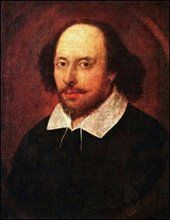
Schema: SAT
We covered a lot of preliminary ground today. Our current text is the Odyssey, by Homer. Homer also wrote the epic poem, the Iliad, which is about the Trojan War. Homer is generally described as a blind poet. One difficulty, but also a learning opportunity, is that we will read two translations of the text. One translation is from Latin (the Internet version), while the other is from the Greek. Remember that the Romans simply took the Greek gods as their own and renamed them. Here is a chart for your use:
Greek Roman
We covered a lot of preliminary ground today. Our current text is the Odyssey, by Homer. Homer also wrote the epic poem, the Iliad, which is about the Trojan War. Homer is generally described as a blind poet. One difficulty, but also a learning opportunity, is that we will read two translations of the text. One translation is from Latin (the Internet version), while the other is from the Greek. Remember that the Romans simply took the Greek gods as their own and renamed them. Here is a chart for your use:
Greek Roman
Odysseus Ulysses
Zeus Jove/Jupiter
Athena Minerva
Poseidon Neptune
Hades Pluto
Names spelled with a ‘C’, Calypso, are from a Latin translation, while names spelled with a ‘K’, Kalypso, and are Greek translations.
Book 1 starts with the classic call to the “muse’ for inspiration and a brief on Ulysses’ position and troubles. We find Minerva working Jove to help Ulysses escape from his kidnapper, Calypso. She is doing so because Neptune is off at a festival in Ethiopia (the end of the world). Neptune is Ulysses’ nemesis because Ulysses blinded Neptune's son, Polyphemus. Also, note that Neptune won't kill Ulysses, only torment him. Jove speaks of Agamemnon and his death and his son’s revenge. The importance of Agamemnon is to remind the audience of his poor homecoming (nostos) and the problems resulting from Helen’s kidnapping and the Trojan War. Minerva is off to help Telemachus, Ulysses’ son with the nasty suitors besieging his home (note what bad guests, xenos, they are). Please note how good a host, xenos, Telemachus is to the disguised Minerva. We also meet Ulysses’ wife, Penelope, model of the Greek faithful wife. The book ends with Telemachus calling an assembly a thinking about finding his father.
Interestingly, the first four books of the Odyssey are not about Ulysses, but his son Telemachus, Penelope, and the suitors. We will not meet our hero until Book V.
Zeus Jove/Jupiter
Athena Minerva
Poseidon Neptune
Hades Pluto
Names spelled with a ‘C’, Calypso, are from a Latin translation, while names spelled with a ‘K’, Kalypso, and are Greek translations.
Book 1 starts with the classic call to the “muse’ for inspiration and a brief on Ulysses’ position and troubles. We find Minerva working Jove to help Ulysses escape from his kidnapper, Calypso. She is doing so because Neptune is off at a festival in Ethiopia (the end of the world). Neptune is Ulysses’ nemesis because Ulysses blinded Neptune's son, Polyphemus. Also, note that Neptune won't kill Ulysses, only torment him. Jove speaks of Agamemnon and his death and his son’s revenge. The importance of Agamemnon is to remind the audience of his poor homecoming (nostos) and the problems resulting from Helen’s kidnapping and the Trojan War. Minerva is off to help Telemachus, Ulysses’ son with the nasty suitors besieging his home (note what bad guests, xenos, they are). Please note how good a host, xenos, Telemachus is to the disguised Minerva. We also meet Ulysses’ wife, Penelope, model of the Greek faithful wife. The book ends with Telemachus calling an assembly a thinking about finding his father.
Interestingly, the first four books of the Odyssey are not about Ulysses, but his son Telemachus, Penelope, and the suitors. We will not meet our hero until Book V.
Answer for bonus question - Helen of Troy was often referred to as the face that launched a 1000 ships since her kidnapping by Paris lead to a 1000 Greek ships being launched for war.
Please comment on what you've read so far.

No comments:
Post a Comment